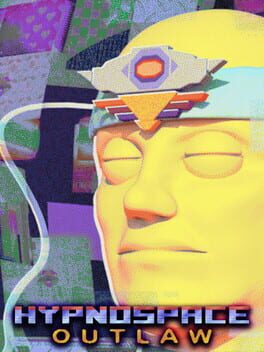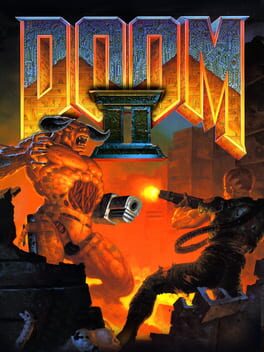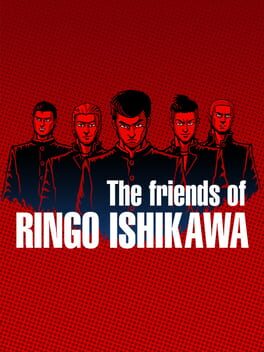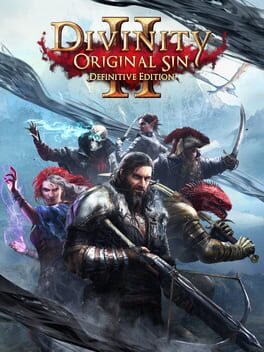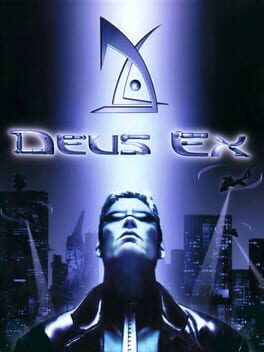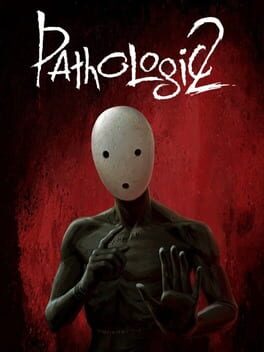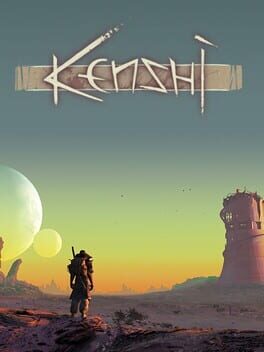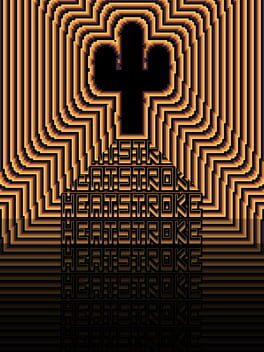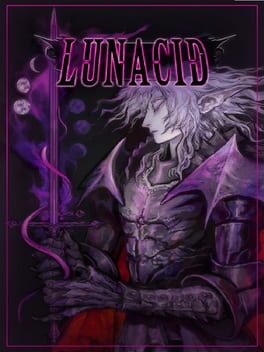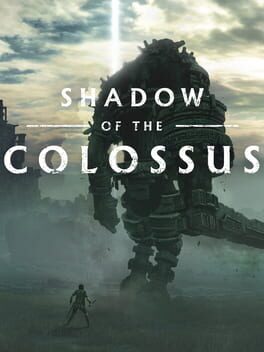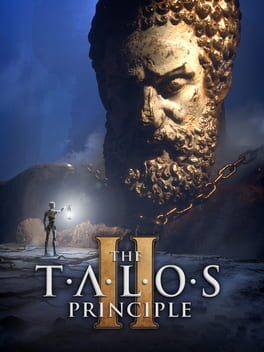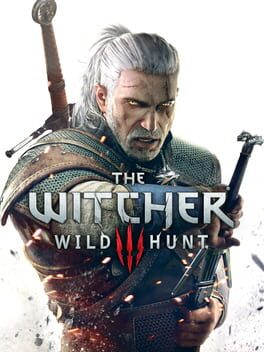AstrinSchmidt
2005
Alongside God of War III, this is one of the only games I know where the only flaw keeping it from a five-star rating is that the story is quite sparse and uninteresting — usually, the story can make up for lacklustre gameplay, but in this case, everything except for the story is pretty much perfect. I am not a big fan of the campy Hollywood action-film style of the story, and it does not really try for anything more complex than 'good guy fights bad guys'... (except for Ada, perhaps?). I do not think myself qualified to analyse gameplay on any interesting level, suffice to say I had fun and was only bored when I got lost (before someone told me I had a map... that one is on me).
2019
It is interesting to start, and while it can feel somewhat slow and boring when you get stuck, and the aesthetics of the websites do get old fairly quickly, the game does progress at a decent pace, bringing in frequent changes to shake up the landscape, and does not overstay its welcome. It took me 4.6 hours to reach the credits, and most of that time was undoubtedly spent reading random webpages in the game.
The gameplay starts off simple, but does eventually get fairly involved, requiring the player to think to combine information from multiple sources to find the answers the game tasks them with finding. The world-building (character writing) is surprisingly effective, condidering the game's limited scope.
Overall, if you can get it for cheap, it is hard not to recommend this short and sweet experience.
The gameplay starts off simple, but does eventually get fairly involved, requiring the player to think to combine information from multiple sources to find the answers the game tasks them with finding. The world-building (character writing) is surprisingly effective, condidering the game's limited scope.
Overall, if you can get it for cheap, it is hard not to recommend this short and sweet experience.
This is the most authentic game I've ever played. The way it sets up all of the characters through casual dialogue, introduces the player to the open world by showing Ringo making his way through the different screens in short cutscenes and then leaving the player to explore, the way it lets you do so many things while not forcing you to do anything... it's much more of an experience to live through than a game to beat.
I wasted my first run having Ringo sit in his room and study all day — I would not advise you to do this. Instead, explore; Have some fun. Go and have Ringo read a book, watch a cool movie, learn a new fighting style. Get into the feel of living out the last days of high school before graduation. With your best friends.
I wasted my first run having Ringo sit in his room and study all day — I would not advise you to do this. Instead, explore; Have some fun. Go and have Ringo read a book, watch a cool movie, learn a new fighting style. Get into the feel of living out the last days of high school before graduation. With your best friends.
This is a long game. After the first forty hours or so, the novelty of it really starts to fade, and you're left with just the combat system to carry the experience.
The combat system itself is great, but alas, this also becomes dull pretty quickly. You'll spend most of your playtime using the same strategies and the same abilities to win battles, and your arsenal will be expanding so slowly that you may not notice how vast your hotbar has actually become.
That last statement summarises the game for me: It is long and slow. Progression is slow, combat is slow and methodical, your characters run around slowly. All of it adds up to make a very deliberate game. Combined with the design of the game frequently forcing you to go back to grind to level up before facing an encounter that you've already... encountered, and it always feels like there's always something to do, until the game just... ends.
All in all, the combat in this game is a lot of fun, and there are often somewhat imaginative ways to solve quests (depending on how imaginative cheesing things with deathfog and teleportation for the twentieth time seems to you) but the whole experience is just slow and meticulous, and you either need a specific mindset (something which I don't have, this being my first proper CRPG experience) or lots of free time to sink into the game to get the enjoyment out of it.
(Copied from Steam)
The combat system itself is great, but alas, this also becomes dull pretty quickly. You'll spend most of your playtime using the same strategies and the same abilities to win battles, and your arsenal will be expanding so slowly that you may not notice how vast your hotbar has actually become.
That last statement summarises the game for me: It is long and slow. Progression is slow, combat is slow and methodical, your characters run around slowly. All of it adds up to make a very deliberate game. Combined with the design of the game frequently forcing you to go back to grind to level up before facing an encounter that you've already... encountered, and it always feels like there's always something to do, until the game just... ends.
All in all, the combat in this game is a lot of fun, and there are often somewhat imaginative ways to solve quests (depending on how imaginative cheesing things with deathfog and teleportation for the twentieth time seems to you) but the whole experience is just slow and meticulous, and you either need a specific mindset (something which I don't have, this being my first proper CRPG experience) or lots of free time to sink into the game to get the enjoyment out of it.
(Copied from Steam)
It's really boring. Lots of walky-talky sections. The quest design is hilariously restrictive, and I don't like the gunplay (the main quest often turns into a shooting gallery).
I am currently on Chapter 3, and I do not like any of the characters. The story is not engaging at all, and the game just does not feel interactive. The RPG mechanics feel tacked-on and can pretty muxh be completely ignored, except for the Honour system. I dislike karma systems which punish you even if there were no witnesses.
Overall, I do not see the appeal. I'll probabky keep playing, but after roughly 30 hours, the game just feels endless and really boring. It's like they made Kingdom Come: Deliverance without any of the fun.
The reason this gets 3 stars is because the production quality is top-notch, and the game does trudge along at a steady pace. It's all right if you want to turn your brain off.
I am currently on Chapter 3, and I do not like any of the characters. The story is not engaging at all, and the game just does not feel interactive. The RPG mechanics feel tacked-on and can pretty muxh be completely ignored, except for the Honour system. I dislike karma systems which punish you even if there were no witnesses.
Overall, I do not see the appeal. I'll probabky keep playing, but after roughly 30 hours, the game just feels endless and really boring. It's like they made Kingdom Come: Deliverance without any of the fun.
The reason this gets 3 stars is because the production quality is top-notch, and the game does trudge along at a steady pace. It's all right if you want to turn your brain off.
2000
This game has great level design for stealth, an interesting narrative and an impeccable atmosphere. I don't really feel like writing the kind of long, pedantic review this game deserves, so all that I'll say for now is that if you at all like stealth games, this is a definite must-play.
The only thing that brings it down for me is the last area being kind of doo-doo, as well as some weird pacing throughout.
The only thing that brings it down for me is the last area being kind of doo-doo, as well as some weird pacing throughout.
2019
2017
This game has the best graphics, some of the best gameplay, and some of the best atmosphere in video games. It's a perfect mix of compelling gameplay and even more compelling setting and story. The music, while mostly not my cup of tea, is well-crafted and helps convey the uniqueness of the different areas and encounters in the game, making the whole experience that much more memorable.
I went into Hollow Knight thinking it was going to be another crappy Soulsborne copycat, except in two dimensions, much like Salt and Sanctuary (that game had such unenjoyable gameplay and uninteresting setting that I never bothered to finish it... maybe I'll go back to it one day). What I got instead was a very successful metroidvania which only took the best elements of Dark Souls, splicing them in with its own gameplay and style. I haven't played any metroidvania-platformer games, but I can say that the gameplay in this one was wholly enjoyable even without the context of existing games.
The story and setting, much like Dark Souls, don't really call for describing them in words — suffice to say I would recommend you to experience the game first-hand.
Overall, Hollow Knight is a masterfully crafter experience from start to finish, with a few frustrating moments helping spice up what could have otherwise been a pretty monotonous experience. Unlike Dark Souls, the game never really drops in quality, and there's lots of game to be had for any player seeking to experience it (as someone who has achieved 112% completion, I'm not even going to try the fifth panethon). I can't recommend this game enough, really — there are no real negatives I can see to it. It's a masterpiece.
I went into Hollow Knight thinking it was going to be another crappy Soulsborne copycat, except in two dimensions, much like Salt and Sanctuary (that game had such unenjoyable gameplay and uninteresting setting that I never bothered to finish it... maybe I'll go back to it one day). What I got instead was a very successful metroidvania which only took the best elements of Dark Souls, splicing them in with its own gameplay and style. I haven't played any metroidvania-platformer games, but I can say that the gameplay in this one was wholly enjoyable even without the context of existing games.
The story and setting, much like Dark Souls, don't really call for describing them in words — suffice to say I would recommend you to experience the game first-hand.
Overall, Hollow Knight is a masterfully crafter experience from start to finish, with a few frustrating moments helping spice up what could have otherwise been a pretty monotonous experience. Unlike Dark Souls, the game never really drops in quality, and there's lots of game to be had for any player seeking to experience it (as someone who has achieved 112% completion, I'm not even going to try the fifth panethon). I can't recommend this game enough, really — there are no real negatives I can see to it. It's a masterpiece.
2018
Despite how simulated the world is, your ways of interacting with it are quite narrow — you cannot even ask random strangers about the weather... I don't really know what I was hoping for, but this game doesn't really seem to have many compelling roleplaying mechanics, and the actual click-and-wait gameplay is both bothersome and boring (micromanaging troops can be interesting enough, but is also frustrating due to all the usual issues you encounter when managing a group in games).
At the end of the day, most of the game seems to be spent running to and fro, or reacting to the world in fairly uninvolved and predictable ways. Maybe I just don't get it.
At the end of the day, most of the game seems to be spent running to and fro, or reacting to the world in fairly uninvolved and predictable ways. Maybe I just don't get it.
2020
2022
The atmosphere is great and exploration is rewarding, but the gameplay never gets particularly interesting and the endings are just disappointing — particularly the hard-to-get ones, due to the effort involved in obtaining them.
Overall, there is not much to say — it's an atmospheric romp with a bunch of intertextual reference, with decent retro-style graphics and a passable soundtrack with occasional highlights.
Overall, there is not much to say — it's an atmospheric romp with a bunch of intertextual reference, with decent retro-style graphics and a passable soundtrack with occasional highlights.
The most damning thing I can say about The Talos Principle II is that it bored me.
The open-world design led to a lot of running back and forth, with large parts of the game spent in dialogues with characters, as well as reading text from terminals. While the writing can be great, I found a lot of the dialogues to be tiresome and not very interesting, like these characters -- many of whom being hundreds of years old -- could hardly break away from retreading the same ground in meandering dialogues. Thus, the story was less consistently engaging than the succinct narrative in the first game.
The puzzles prove to be the true catalysts of the downfall of The Talos Principle II in my mind, however. Out of the 132 main puzzles, there was precisely one which genuinely had me stumped for a while (Thrust Vector, in case you are curious), and probably around two dozen which I felt were true 'puzzles' and not simple busywork. The lack of difficulty in the puzzles meant that on top of spending lots of time running around between puzzles, solving the puzzles themselves often felt like a waste of time, where nothing was learned and nothing much was gained.
Of note is my mention of 'main puzzles'. You see, outside of the usual puzzles, there are also story setpiece sections which feature the player manipulating puzzle elements, and there are monuments. The setpiece sections are generally of an even lower standard of difficulty than the main puzzles, and are busywork to the point of not actually having any numbers or names to identify them with. The monuments exist in three forms: pulling a lever in a location based on an image, map, or other similar clue; shooting a laser into a receptacle; and finding and chasing a 'sprite' around the map. The first of these hardly requires thinking most of the time, the second is a matter of shooting lasers across the map, requiring some tedious laser connector positioning across long distances, and the third can hardly be called a puzzle by any stretch of the imagination. These stars were so tedious and pointless that I did not bother getting them.
With all of that out of the way, my experience was far from negative on the whole. There are definitely many points where the familiar brilliance of the writing shines through -- I was particularly fond of the interactive text adventures in the game. There are some stand-out music tracks I quite liked. The elephant in the room is, however, the graphical presentation. The level of detail is simply absurd, the performance is great (other than the random crashes, of which I experienced 17 in 25 hours), and many of the visual designs of the elements of the environments are simply stunning; I was frequently reminded of the likes of BLAME! and NaissanceE, brought to life in real-time 3D at an unprecedented level of fidelity.
Overall, I found The Talos Principle II to be severely lacking as a puzzle game, and not as compelling on the merits of its narrative as the first game, but still good and definitely worth its low asking price.
That said, shout out to Croteam for putting multiple direct parallels between Shakespeare's The Tempest and the story and setting of this game into the text, in a way which could go over the average player's head and still make for a full experience. I would recommend reading/watching The Tempest on its own merit, but I have been mulling the parallels over in my head for the past day and it's been good fun.
The open-world design led to a lot of running back and forth, with large parts of the game spent in dialogues with characters, as well as reading text from terminals. While the writing can be great, I found a lot of the dialogues to be tiresome and not very interesting, like these characters -- many of whom being hundreds of years old -- could hardly break away from retreading the same ground in meandering dialogues. Thus, the story was less consistently engaging than the succinct narrative in the first game.
The puzzles prove to be the true catalysts of the downfall of The Talos Principle II in my mind, however. Out of the 132 main puzzles, there was precisely one which genuinely had me stumped for a while (Thrust Vector, in case you are curious), and probably around two dozen which I felt were true 'puzzles' and not simple busywork. The lack of difficulty in the puzzles meant that on top of spending lots of time running around between puzzles, solving the puzzles themselves often felt like a waste of time, where nothing was learned and nothing much was gained.
Of note is my mention of 'main puzzles'. You see, outside of the usual puzzles, there are also story setpiece sections which feature the player manipulating puzzle elements, and there are monuments. The setpiece sections are generally of an even lower standard of difficulty than the main puzzles, and are busywork to the point of not actually having any numbers or names to identify them with. The monuments exist in three forms: pulling a lever in a location based on an image, map, or other similar clue; shooting a laser into a receptacle; and finding and chasing a 'sprite' around the map. The first of these hardly requires thinking most of the time, the second is a matter of shooting lasers across the map, requiring some tedious laser connector positioning across long distances, and the third can hardly be called a puzzle by any stretch of the imagination. These stars were so tedious and pointless that I did not bother getting them.
With all of that out of the way, my experience was far from negative on the whole. There are definitely many points where the familiar brilliance of the writing shines through -- I was particularly fond of the interactive text adventures in the game. There are some stand-out music tracks I quite liked. The elephant in the room is, however, the graphical presentation. The level of detail is simply absurd, the performance is great (other than the random crashes, of which I experienced 17 in 25 hours), and many of the visual designs of the elements of the environments are simply stunning; I was frequently reminded of the likes of BLAME! and NaissanceE, brought to life in real-time 3D at an unprecedented level of fidelity.
Overall, I found The Talos Principle II to be severely lacking as a puzzle game, and not as compelling on the merits of its narrative as the first game, but still good and definitely worth its low asking price.
That said, shout out to Croteam for putting multiple direct parallels between Shakespeare's The Tempest and the story and setting of this game into the text, in a way which could go over the average player's head and still make for a full experience. I would recommend reading/watching The Tempest on its own merit, but I have been mulling the parallels over in my head for the past day and it's been good fun.
The open world design is insufferable, making you run around bland-looking landscapes to find quests which you are underlevelled for; the combat is simply bad, with Geralt having ridiculous, long-winded animations for simple actions, adding on to the general laggy feeling of the movement to make controlling Geralt an overly unpleasant experience; the design relies on gear upgrades, meaning that you have to run around levelling up your stuff in a certain way in order to progress the game, going against the entire point of giving the game an open world (playing on Death March, I never found any 'grey' or 'green' quests. I beat a few quests when they were 'yellow', and even one which was 'red', but even my patience and determination has its limits).
I am personally not a huge fan of RPG style games... The over reliance on 'telling', rather than 'showing', really weighs the experience down considering that video games are primarily a visual medium. So, while a game such as Limbo can give you a lot with few words, The Witcher 3 prefers to throw many, many words at you for little to no reason. I dislike the character of Geralt from what I've experienced of him within my twenty or so hours playing this game, and I do not appreciate how every quest involves someone dumping their entire life story on me and expecting me to care. I know, this isn't an objective assessment of the quality of the game, but it just helps to highlight why I found the game so unenjoyable.
To give credit where it's due, though, the graphics in this game look amazing, and the soundtrack seems pretty good. The game also seems fairly polished, with good performance and no major bugs getting in my way. I can also see how some people might enjoy the heavy-handed storytelling of the game, say if they were in the mood to watch a cheesy American-style comedy about a badass womaniser going about his business, being a badass. Even though I generally give ratings based on my experiences with the game, I realise that this website weighs games based on the ratings you give them, so I can concede to increase my rating. It's not a 'bad' game, it's just baffling in how anti-fun its design seems to be in many places, from my own perspective. A misguided effort, if you will.
I am personally not a huge fan of RPG style games... The over reliance on 'telling', rather than 'showing', really weighs the experience down considering that video games are primarily a visual medium. So, while a game such as Limbo can give you a lot with few words, The Witcher 3 prefers to throw many, many words at you for little to no reason. I dislike the character of Geralt from what I've experienced of him within my twenty or so hours playing this game, and I do not appreciate how every quest involves someone dumping their entire life story on me and expecting me to care. I know, this isn't an objective assessment of the quality of the game, but it just helps to highlight why I found the game so unenjoyable.
To give credit where it's due, though, the graphics in this game look amazing, and the soundtrack seems pretty good. The game also seems fairly polished, with good performance and no major bugs getting in my way. I can also see how some people might enjoy the heavy-handed storytelling of the game, say if they were in the mood to watch a cheesy American-style comedy about a badass womaniser going about his business, being a badass. Even though I generally give ratings based on my experiences with the game, I realise that this website weighs games based on the ratings you give them, so I can concede to increase my rating. It's not a 'bad' game, it's just baffling in how anti-fun its design seems to be in many places, from my own perspective. A misguided effort, if you will.

